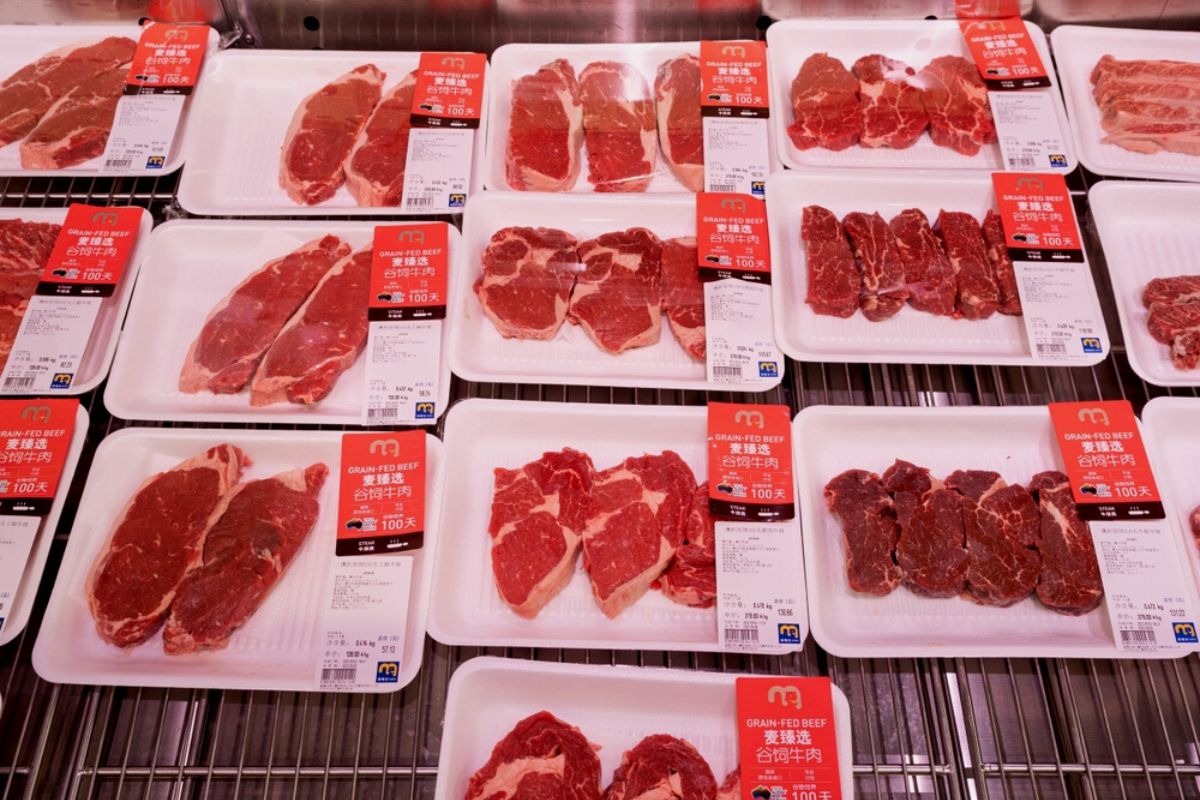Brazilian meatpacking giant Minerva has resumed its beef slaughtering and production operations after Chinese authorities lifted an embargo on Brazilian beef exports. The temporary ban was imposed a month ago after a case of mad cow disease was found in the northern Brazilian state of Pará.
Brazil exports more than 60 percent of its meat production to China, and Minerva’s exposure to this market is also significant: seven of its production units (three in Brazil, three in Uruguay, and one in Argentina), with a capacity of approximately 10,000 cattle per day.
Shortly after the opening of trading and the announcement by the Chinese and Brazilian authorities, Bradesco BBI, Bradesco’s research and consulting arm, indicated that the shares of Brazilian beef producers would benefit from the decision.
Early today, Minerva and JBS shares were up 4.60 and 3.83 percent, respectively. By midday, the rally had cooled to 4.25 and 0.65 percent, respectively.
Bradesco BBI expects lower demand from the Chinese market this year due to an oversupply of pork, which could also lead to a drop in beef prices as well, which is why the bank maintained a neutral recommendation on Minerva’s shares.
Currently, China is Brazil’s largest trading partner and has strict protocols regarding the quality of imported food.
Since 2015, Brazil and China have had a bilateral agreement that establishes guidelines for the identification of bovine spongiform encephalopathy (BSE), or mad cow disease.
The protocol provides for the immediate and voluntary suspension of Brazilian beef exports in the event of a confirmed case of the disease, even in atypical cases — when the disease occurs spontaneously in an animal and there is no risk of spreading to herds or humans. The case identified in February in Pará was atypical.
Cattle slaughter increased in 2022 after two consecutive years of decline. Last year, 29.8 million animals were slaughtered, an increase of 7.5 percent over the previous year. According to analyst Bernardo Viscardi of the Brazilian Institute of Geography and Statistics (IBGE), this happened due to a cyclical problem. After a period of retention of cows for breeding, followed by the entry of calves on the market and their consequent devaluation due to the increase in supply, female cows are sent to slaughter.
According to the IBGE, there was a 19.1 percent increase in the slaughter of female cows. With the temporary embargo on Chinese exports lifted in February, exporting companies held back the pace of slaughter, which will now increase again.


 Search
Search






































